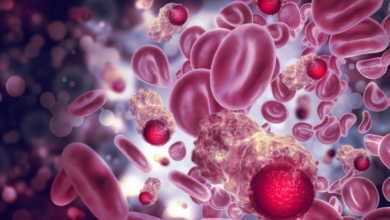VKORC1 Testing (for warfarin dosage)

What is VKORC1 Testing?
VKORC1 (Vitamin K epoxide reductase complex subunit 1) testing is a genetic test used to determine a person’s sensitivity to warfarin, a blood-thinning medication commonly prescribed to prevent blood clots. The VKORC1 gene plays a crucial role in the metabolism of vitamin K, which is essential for blood clotting. Variations in this gene can affect a person’s response to warfarin, leading to either excessive bleeding or inadequate blood thinning..
Why VKORC1 Testing is required?
VKORC1 testing is essential for:
- Optimizing warfarin dosage: By understanding a patient’s VKORC1 genotype, healthcare providers can tailor the initial warfarin dosage to minimize the risk of bleeding or clotting complications.
- Reducing adverse events: VKORC1 testing can help to prevent excessive bleeding, which can be a serious side effect of warfarin.
- Improving treatment outcomes: By individualizing warfarin therapy based on genetic factors, VKORC1 testing can improve the overall effectiveness of the medication.
which are the method of VKORC1 Testing?
VKORC1 testing typically involves:
- Blood sample: A simple blood draw is taken from the patient.
- Genetic analysis: The DNA in the blood sample is analyzed to identify variations in the VKORC1 gene.
- Interpretation: The results are interpreted to assess the patient’s sensitivity to warfarin.
who should go for VKORC1 Testing?
Individuals starting warfarin therapy should consider VKORC1 testing, especially if:
- They have a family history of adverse reactions to warfarin
- They have a history of bleeding or clotting disorders
- They are taking other medications that may interact with warfarin
- They belong to certain ethnic groups that may have a higher frequency of VKORC1 gene variations
What are the results of VKORC1 Testing?
VKORC1 testing results can help to predict a patient’s sensitivity to warfarin. Based on the identified genetic variations, healthcare providers can:
- Adjust the initial warfarin dose: For patients with a high sensitivity to warfarin, a lower initial dose may be recommended.
- Monitor warfarin levels more closely: Patients with a low sensitivity to warfarin may require more frequent monitoring of their blood clotting factors.
- Consider alternative anticoagulants: In some cases, individuals with extreme sensitivity to warfarin may benefit from alternative blood-thinning medications.
What are the components of VKORC1 Testing?
VKORC1 testing primarily focuses on analyzing variations in the VKORC1 gene. Specific genetic polymorphisms, such as the VKORC1-1639G>A variant, have been shown to influence warfarin sensitivity. By identifying these variations, healthcare providers can better predict a patient’s response to warfarin therapy and optimize treatment outcomes.





